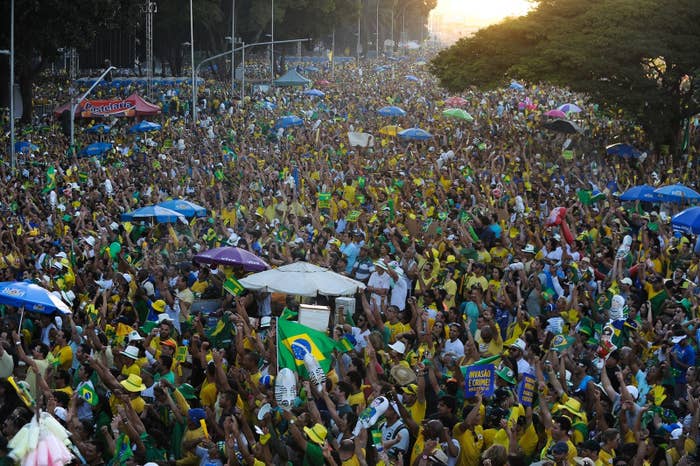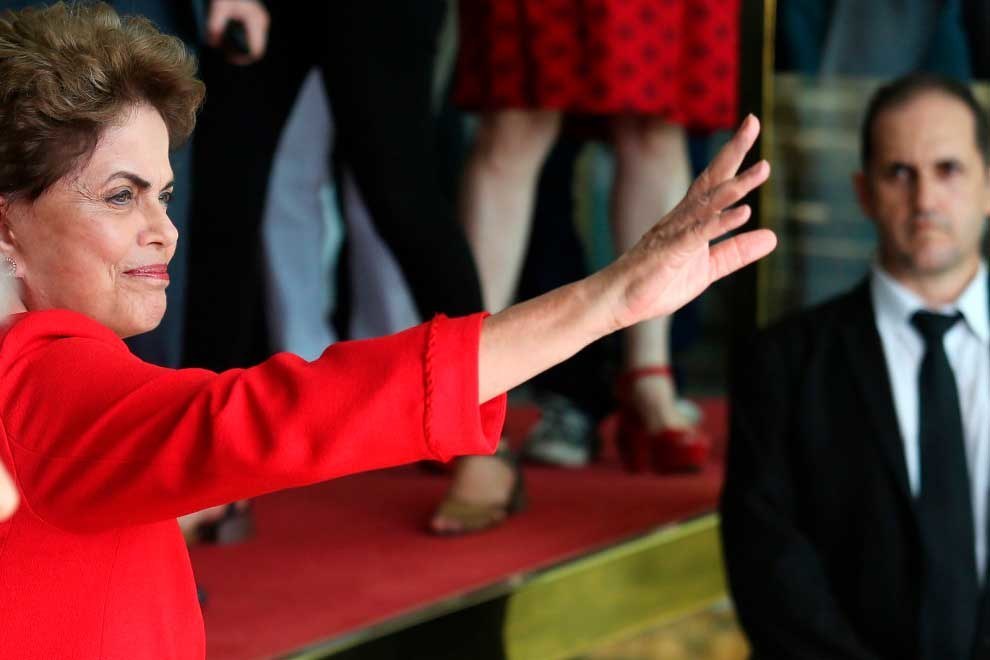Brazilians are best known for samba and soccer, but we are also experts in constitutionally removing our elected presidents. We've impeached two of them in the last 25 years, which has to be a world record. Just last year, Brazilian lawmakers voted to remove President Dilma Rousseff from office, bringing the dramatic downfall of the country’s first female leader.
Now, US Democrats are beginning to speak openly about impeaching President Donald Trump over his interference in an FBI investigation — if they win Congress in the midterms, or if they can persuade Republicans to join them.
What follows is what I've learned covering Brazilian politics for 20 years, and from covering Dilma's impeachment closely. When President Fernando Collor was impeached in 1992, I was in high school. And what I've learned is that just catching the leader doing something illegal and/or unpopular isn't enough. Impeachment is, as Americans are learning, at least as much about political power as presidential conduct.
Here's what brought Brazil's government to take that extreme step:

1. YOU NEED A DEEPLY POLARIZED SOCIETY In 2014, Brazilian society was intensely polarized between Rousseff's left-wing Workers' Party and the center-rightist opposition. Rousseff was re-elected by a narrow margin (51.6%) over her opponent Aécio Neves (48.4%). Sound familiar?
2. THE PEOPLE REALLY FEEL THE EFFECTS OF AN ECONOMIC CRISIS: In the last three years, the Brazilian economy shrunk by 8%. It's the worst recession in our history, and — unlike in the US, where the problems are stagnation and inequality — millions of people could feel themselves getting poorer in real time.
3. CONGRESS FINDS SOMETHING TO CALL WRONGDOING: This doesn't have to be a criminal conspiracy. Even though Brazil is a world leader in bribery and real corruption, Rousseff was not impeached over personal misconduct. Instead, she was charged with accounting trickery aimed at disguising the budget deficit.
But she wasn't really brought down for accounting. In fact, she paid the political price for mismanaging of the economy and a multi-billion dollar corruption scandal surrounding Petrobras, the state-run oil company, an ongoing scandal that badly damaged all the main leaders of her Workers' Party.
(That's not to say there couldn't have been other reasons to impeach her. Last week, one year after her impeachment, the Brazilian Supreme Court released videos in which Rousseff's marketing advisers said she knew that undeclared money was used in the 2014 campaign.)
4. PEOPLE HEAD OUT INTO THE STREETS: The investigations surrounding the corruption allegations and the economic malaise sparked huge demonstrations across Brazil in 2015 and 2016, with crowds demanding her impeachment.
5. THE PRESIDENT'S POPULARITY CRASHES: This cocktail of recession, scandals and demonstrations was devastating to the president's popularity. Just 15 months after taking office as re-elected president, surveys showed that 71% of Brazilians disapproved her government.
6. THE PRESIDENT'S POLITICAL SUPPORT COLLAPSES: The next and the most dramatic step was the destruction of Dilma Rousseff's political support in Congress.
7. OH — AND YOU'D BETTER BE WILLING TO PUT UP WITH YEARS OF QUAGMIRE AND PARALYSIS
THE BIGGEST DIFFERENCE BETWEEN BRAZIL'S SITUATION AND THE U.S. IS WHO CONTROLS CONGRESS.
Dilma's party — unlike Donald Trump's — didn't control Congress, the body (as in the U.S.) with the power to impeach the president. Dilma’s party and her loyal allies from other left-wing parties had only 30% of the seats on Congress. Her government depended on partners on the center-right, some of them members Vice-President Michel Temer's party, many of whom were also facing corruption allegations. They didn't have any particular loyalty to Rousseff, and decided to restart the game by impeaching her.



